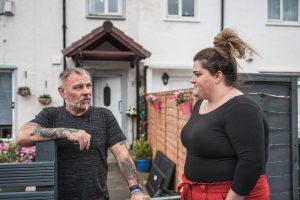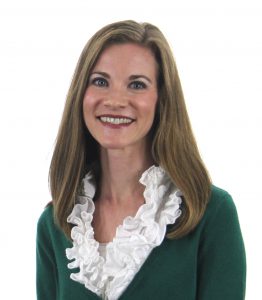
by Steve | Sep 3, 2019 | Magazine, Magazine Articles, September-October 2019

Minneapolis Convention Center, location of the 2020 United Methodist General Conference. Photo: Meet Minneapolis
By Sam Hodges (UMNS) –
Two bishops propose turning The United Methodist Church into an umbrella organization for new, self-governing church groups that would offer different approaches on ordination of gay clergy and same-sex unions. Michigan Conference Bishop David Bard and Texas Conference Bishop Scott Jones began collaborating on a plan after the rancorous 2019 General Conference and shared it with United Methodist News this week.
“We both envision a future where the church will focus on its mission of making disciples and spend less time and energy debating issues of human sexuality, which means we need to bless different parts of The United Methodist Church to be about the mission in their own ways,” Jones said.
The denomination has faced conflict for more than four decades over theological differences regarding homosexuality. The 2019 General Conference, held February 23-26 in St. Louis, reinforced restrictions on LGBTQ ordination and same-sex unions, but also led to protests and resistance by many churches across the U.S.
Bard and Jones’ plan comes as various groups of church leaders discuss options for the denomination, including schism. A September 18 deadline looms for petitions to be submitted for the 2020 General Conference in Minneapolis.
Though bishops don’t vote at General Conference, Bard and Jones said they feel an urgency to stimulate debate and action. “We’re offering this plan as a thought experiment that we hope others will take seriously and consider as they are making decisions about the future of the church,” Jones said. Bard added, “Scott and I acknowledge that there’s room for other ideas to be incorporated.”
Under the Bard-Jones plan – titled “A New Form of Unity: A Way Forward Strategy 2019-2022” – an annual conference would choose to join one of three groups the bishops are tentatively calling the Traditional Methodist Church, the Open Methodist Church, and the Progressive Methodist Church.
The Traditional Methodist Church would begin with a Book of Discipline that includes the Traditional Plan, which passed by a vote of 438 to 384 at the 2019 General Conference and strengthened enforcement of restrictions on LGBTQ ordination and same-sex unions.
The Open Methodist Church and Progressive Methodist Church would begin with a Book of Discipline modified to include the Simple Plan as presented in St. Louis. That plan called for eliminating restrictions on same-sex unions and ordination of gay persons as clergy, as well as removing the church’s official position that homosexuality is “incompatible with Christian teaching.”
Under the Bard-Jones proposal, the Progressive Methodist Church’s Book of Discipline would be further modified to affirm clearly the full inclusion of LGBTQ persons in marriage and ordination candidacy. The Open Methodist Church and Progressive Methodist Church might choose to be one group, the bishops say.
The two or three churches would each decide on a name (“Methodist” isn’t required to be part of it), and each would hold its own General Conferences, with complete freedom to revise its Book of Discipline. Each would fund its bishops and decide on approved seminaries. The two or three churches would share in governing the General Council of Finance and Administration, Wespath, the United Methodist Publishing House, and the General Commission on Archives and History. They would contribute proportionally to the Black College Fund and Africa University. Other general church agencies would have their own boards and be accountable to the Open Methodist Church but would provide services as requested to the other churches.
The United Methodist Church would no longer have individual members but would continue to exist “as an umbrella to facilitate this new form of unity,” the plan says. The churches would be in full communion, and each could use the cross-and-flame logo of The United Methodist Church.
Though specific in many ways, the plan leaves unanswered big questions, such as the global nature of The United Methodist Church. “Churches in Europe and Asia could form their own Methodist Churches or belong to one of the two or three churches, with the precise nature of the relationship to be determined,” the plan says. “There would be a United Methodist Church in Africa, the precise affiliations to the two or three churches to be determined.” Asked about the ambiguity, Bard said, “While we’ve had conversations with our colleagues from other parts of the world, we didn’t want to go too far in defining what they may wish to do.”
Another unknown: Would these new churches have a Judicial Council? “Each of the new church groupings would determine whether or not to form a Judicial Council or similar body,” Bard said.
The Connectional Conference Plan that failed at the 2019 General Conference would have realigned the denomination according to perspectives on LGBTQ inclusion, as does Bard-Jones. But the Connectional Conference Plan required constitutional amendments, a lengthy process involving votes throughout the annual conferences. Bard and Jones believe their plan could be launched by General Conference action only.
“The key is the proposal to allow U.S. annual conferences to leave the denomination,” they say in the plan. “It was contained in section 9 of petition 90041 of the Traditional Plan. This section of the petition was ruled constitutional by the Judicial Council. Because the petition died in the Standing Committee on Central Conference Matters, section 9 would need to be reintroduced and passed in 2020.”
The Bard-Jones plan foresees churches that disagree with their annual conference’s affiliation decision having the right “to transfer conferences with their assets, thereby joining a different church.” The plan also lays out an implementation timetable, with the 2020 General Conference approving the major steps, followed by annual conferences choosing their affiliations with one of the two or three new churches in 2021 and the first General Conferences of those churches in 2022.
Bard and Jones said they have shared their plan with fellow bishops as well as with groups discussing the future of the church. The stakes are high, and the two bishops hope to have an influence. “Our plan offers a vision for keeping as much unity as possible and a pathway for decisions to be made,” Jones said.
Sam Hodges is a Dallas-based writer for United Methodist News.

by Steve | Sep 3, 2019 | Magazine, Magazine Articles, September-October 2019

Graduates of Scarlet Hope’s Career Development Program. Photo by Charissa Koh/WORLD Magazine.
By Courtney Lott –
The readers of World, a Christian news magazine, nominated 200 small ministries over the past year that offer challenging, personal, and spiritual help to those in need. After countless interviews, and a 3,000-mile road trip, this list was narrowed down to five organizations as contenders for Hope Awards issued by World. Here are brief profiles of these innovative faith-based initiatives.
Scarlet Hope
In 2008, 24-year-old Rachelle Starr walked into a strip club with three friends. They wore turtlenecks, went without make-up, and had to pay the bouncer just to get in the door. Across the street, their husbands waited and watched as Starr and the other two women asked the owner of the club if they could bring the dancers a weekly meal. Though skeptical, he agreed. Ten years later, Scarlet Hope is still taking food to clubs every Thursday and building relationships with the dancers.
Since that first day, this ministry has expanded to provide vocational training, as well as Bible classes. During the week the volunteers drive the streets looking for sex workers. They distribute roses with their business cards and care bags filled with an outfit and toiletries. Starr utilizes technology developed by Seattle Against Slavery to gather and message the numbers prostitutes share online. She receives a variety of responses ranging from rude rejections to desperate pleas for help. Along with meeting these physical needs, the volunteers of Scarlet Hope also pray with the workers and tell them that Jesus loves them.
Unable to provide safe transitional housing for the women who come to them for shelter, Scarlet Hope has partnered with other organizations nearby. This has also enabled them to focus on helping sex workers build a life outside of the industry. In 2017 they started a Career Development Program. During this 18 month training, women learn life skills from a Christian perspective, receive counseling, and obtain job experience. Taking classes earns students “Scarlet bucks,” which they can trade in for donated clothes and household items. Starr says that providing jobs with dignity for women who once sold their bodies to survive is vitally important. A sign at Scarlet’s Bakery sums this concept up quite nicely: “We don’t hire people to bake cupcakes. We bake cupcakes to hire people.”
Little Light Christian School

After school program at Little Light Christian School. Photo by Charissa Koh/WORLD Magazine.
At Little Light Christian School (LLCS) in Oklahoma City, the students start the day with a unique ritual: changing out of their street shoes and into a pair provided by the school. It’s a matter of safety, says Principal and founder, Robin Khoury, so all the students get rid of their status symbols the moment they walk in the door. In order to attend Little Light, children must have at least one parent in prison. Most struggle academically and deal with a wide range of emotional trauma that only adds to their burden.
Principal Khoury opened this free Christian school in 2012 after volunteering for almost two decades in prison ministry. While there, she learned that children with parents in prison struggled significantly in academics. The curriculum comes from a Christian worldview, modified from Khoury’s time homeschooling her own children. However, it can also be adjusted to meet each students’ needs. One boy found motivation to catch up to his grade level by being allowed to work on an iPad, while a fifth-grade girl has gone from being emotionally closed off to forming connections with the other students.
Teachers are equipped to care for kids who have experienced deep trauma and trained on how to try and de-escalate bad behavior. LLCS not only provides two meals and two snacks every weekday, but it also sends students home with backpacks full of food on the weekends. When classes end, LLCS offers an after-school program from 3 p.m. until 5 p.m. The school is limited on resources and Principal Khoury often isn’t sure how she will pay all of her teachers. However, she also has many stories of how God has provided in the past and trusts him to continue in his faithfulness.
Forge Center for Virtue and Work
Founder James Whitford began working with the homeless in Joplin, Missouri, nearly 20 years ago when he and his wife rented out a room at the Red Cross. Calling their shelter “Watered Gardens” in honor of Isaiah 58:11’s encouragement to work with the poor, the Whitfords offered necessities to the impoverished of their city. After reading Toxic Charity and developing a desire to empower people to escape poverty, they created a “Worth Shop.” Here, those who come in can do simple tasks for a set amount of time to earn what they need. Fifteen minutes of work buys four items from the thrift shop, an hour earns a week of groceries, and twelve hours a week reserves a bed in the shelter.
Three years later, Watered Gardens developed “Forge Center for Virtue and Work.” This program takes six men through three phases to help them get back on their feet. Each must work at the Worth Shop for three months before they are allowed to move into the Forge dorms and enter phase one: education. Here they take classes for eight hours a day, learning a wide range of topics including the Bible, health, and legal living. Work readiness follows this phase in which Forge finds companies willing to hire one of their students. They then shift to a transitional phase where they move out of the dorms and into a house with two other students. Finally, they take the step to independence. In order to graduate, they must have a full-time job, their own place, and medical insurance.
There is a 5 percent graduation rate. While this may sound like a small number, it is actually very good for an intensive program like Forge. Many get 45 days in and believe they can stay sober on their own. Those who do, often end up back at Watered Gardens drunk or high. Without heart change, director Jamie Myers says, there will be no behavior change. Whitford believes that the most effective programs are work-oriented and outcome-driven. One day, he hopes to create a network of nonprofits like Forge around the United States.
Purposeful Design
When marketing consultant David Palmer saw how difficult it was for the homeless of Wheeler Mission in Indianapolis, he prayed, then went to Google. Though he didn’t have a background in carpentry, he and some friends put together a piece of furniture and, based on the positive feedback they received, decided that working with wood was the answer. This began Purposeful Design. Here, men leaving addiction, homelessness, or prison are able to work and find community. Sales have continued to grow as the men create tables and earn loyal customers like Purdue University.
Recently, this non-profit was able to move into a new, larger facility. Their lobby displays placards with ways Purposeful Design has changed the lives of the men who work there. “I used drugs and sold them,” one reads. “Then I had an encounter with a man named Jesus.” Another says, “God picked me up, sanded me off, put a new coat of stain over me, and set me back on the shelf.”
The only requirements to get hired is that a man must be able-bodied, clean and sober, and ready to follow instructions. But teaching woodworking is only one part of Purposeful Design’s goal, says Palmer. They’re also working to “get under the skin.” Without heart change, the skills and paychecks are just a “Band-Aid for a terrible wound.” Employees participate in morning prayer and weekly bible studies. Though many of the men don’t claim to be Christians, they continue to attend these meetings and ask questions. Accountability and friendship keep them coming, providing community and dignity within their work environment.
20schemes

Natasha Davidson talks with a resident of the Niddrie scheme in Edinburgh, Scotland. Photo by Gary Fong/ Genesis Photo Agency.
When people in the U.S. hear the word “scheme,” sneaky hijinks often come to mind. In Scotland, however, this word means something very different. Here, schemes are neighborhoods with a high percentage of government housing. These two- and three-story apartments were built by the local government after WWII in order to provide for the poor. They often become their own little worlds and are populated with large numbers of people officially defined and “income deprived.” The international winner of The Hope Award, 20schemes, seeks to create “charity-infused churches” in twenty such areas.
Director Mez McConnell comes from a similar background to many of the schemers. Abandoned by his mother at the age of 2, he entered into a life of violence and homelessness that was only turned around by an encounter with Jesus after a group of Christians visited him in prison.
Though the houses and apartments often look nice, McConnell explains that many children who live here haven’t had a hot meal in weeks and are surviving on moldy Rice Krispies and milk gone bad. In spite of this, however, there is a sense of community spirit within the schemes. With families living there for generations, they see each other as “their own people.” Crime is bad, but only done to strangers, therefore residents of the schemes leave their doors unlocked and trust each other.
The leaders of 20schemes live in the communities they serve, are not afraid to talk about sin, and emphasize forming a church family. Because many schemers speak about losing friends when they become Christians, this makes church community even more vitally important. 20schemes also has a two-year training program for interns, many of who are residents of the schemes. Some, however, come from different classes and even different parts of the world as well. 20schemes concentrates its efforts on gospel presentation. It is “only a realization of our sin before a holy God that sets us on the road to change,” McConnell says. “Handouts are a detour.”
Courtney Lott is the editorial assistant at Good News. For more information, check out world.wng.org.

by Steve | Sep 3, 2019 | Magazine, Magazine Articles, September-October 2019
 By Reed Hoppe –
By Reed Hoppe –
It has been a rough season in The United Methodist Church. Infighting and factions seem to receive more news coverage than the programs we created to spread the gospel, relieve poverty, help victims of natural disasters, and minister to hurting people.
When I become overwhelmed with the uncertainty of the future, I go back to our core mission: The mission of the church is to make disciples of Jesus Christ for the transformation of the world.
I think of the fourth- and fifth-grade students I teach in Sunday school, and the questions they ask as they explore faith in Jesus. I think of the people in our local church who are being discipled and growing in faith. And I think of TMS Global’s cross-cultural workers who humble and inspire me. They relate stories back to their supporters about the ways they see transformation as Jesus works in the lives of people.
For example, Arthur and Mary Alice Ivey have served in Peru for 17 years. When their three children lived and served with them, the Iveys would frequent a restaurant in Huancayo.
Willy served as a waiter in the restaurant. He would often wait on the Iveys and noted how happy they were and how much they laughed together. After watching them for several months, Willy pulled Arthur aside and wanted to know why his family was different from most families Willy knew.
Arthur shared the gospel with Willy, and he put his trust in Jesus. Willy was already attending Alcoholics Anonymous, but after coming to faith, he was completely freed of his addiction to alcohol. As Willy grew in faith, he became more and more involved in the Iveys’ ministries. Willy attended a discipleship group and learned more about Jesus and what it means to follow him. He began volunteering with short-term medical teams that traveled from the United States to serve under-reached areas in Peru.
Willy’s family noticed a tremendous change in him and became curious about his new faith. His wife, Margot, and his daughters, Nicole and Jhomara, began attending the Iveys’ weekly discipleship group. The Iveys shared the gospel with Margot, and she put her faith in Jesus. Willy learned how to share his faith in Christ through participating in the Iveys’ ministries and led his two daughters to faith. He also led his parents, in-laws, and several other family members to put their trust in Jesus.
Willy led his son, Matias, to faith, but Matias engaged in a time of rebellion for several years. He started going to pagan festivals, drinking, and experimenting with drugs. Matias eventually dropped out of school.
The Iveys and Willy spent a lot of time in prayer for Matias, and he eventually turned back to the Lord. Matias returned to school and is doing very well. He was recently baptized by Arthur and is growing rapidly in his faith.
“God has done marvelous things in the lives of this family,” said Mary Alice. “More than a dozen people have come to know Jesus as Lord through Willy sharing his faith with them.”
It’s easy to get distracted from accomplishing our core mission. I can become so focused on serving my family that I spend much more time doing chores for them than spending time with them. In the same way, we can become so involved in the politics of church that we cease to be the church in our neighborhoods, communities, and the world.
Willy invested his time and energy into sharing the gospel with his family. People came to faith through Willy’s witness, and he and the Iveys are discipling these new believers in their walk with Jesus.
Whatever the future holds for The United Methodist Church, the commission of Jesus will not change. May we look for ways to love God, love people, and make disciples despite the circumstances in which we find ourselves.
Reed Hoppe serves as the associate director of marketing for TMS Global (www.TMS-Global.org).






 By Reed Hoppe –
By Reed Hoppe –